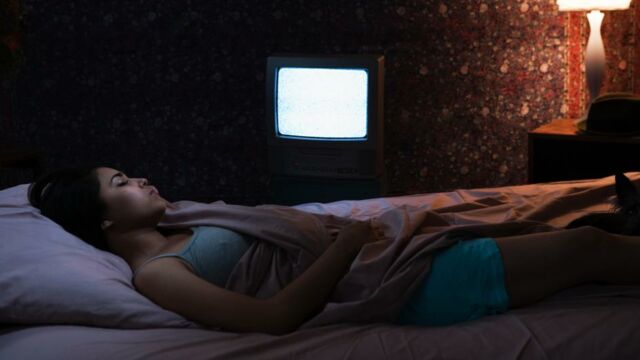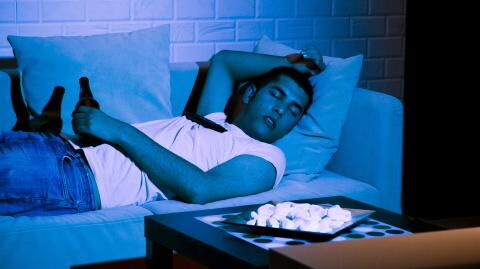We already know the main external factors that increase the risk of obesity: lack of physical activity, a high-calorie diet, stress or sleep quality. But a new study dug deeper into that last factor: the impact of light on weight gain. According to the researchers, turning off the TV and turning off all artificial light sources at bedtime will help you reduce your risk of gaining weight.
Discover our latest podcast
Sleeping with the TV on = 5 extra kg
To assess this criterion, the researchers interviewed 43,722 women, logged their weight and height, and measured their waist and hip circumference. The participants, who were between the ages of 35 and 74, didn't have any lifestyle habits that would influence the study, such as sleeping during the day or doing shift work. The survey asked participants about their exposure to light sources at bedtime.
The results allowed the researchers to deduce the impact of artificial light on weight gain. While, for example, the use of a small night light didn't have a high incidence, falling asleep near a lamp or TV led to an extra 17% chance of gaining 5 kg. However, the presence of light from another room had no obvious impact.
How does it work?
During sleep, a hormone is naturally produced by the human body: melatonin. Its release influences the biological mechanisms of the body, and it depends largely on light, as explained by Dr. Chandra Jackson, co-author of the study:
Humans are genetically adapted to a natural environment consisting of sunlight during the day and darkness at night. Exposure to artificial light at night may alter hormones and other biological processes in ways that raise the risk of health conditions like obesity.
People who live in cities are the most at-risk
Besides reducing light sources at home, the co-author stresses that people who live in cities are more exposed to artificial light, whether it's neon lights in stores, building lights or street signs. An observation that could present city lights as a public health hazard, as well as an environmental issue. Note, however, that this study focused exclusively on a sample made up of women. Further scientific research will have to be done to confirm or disprove this tendency in humans.















